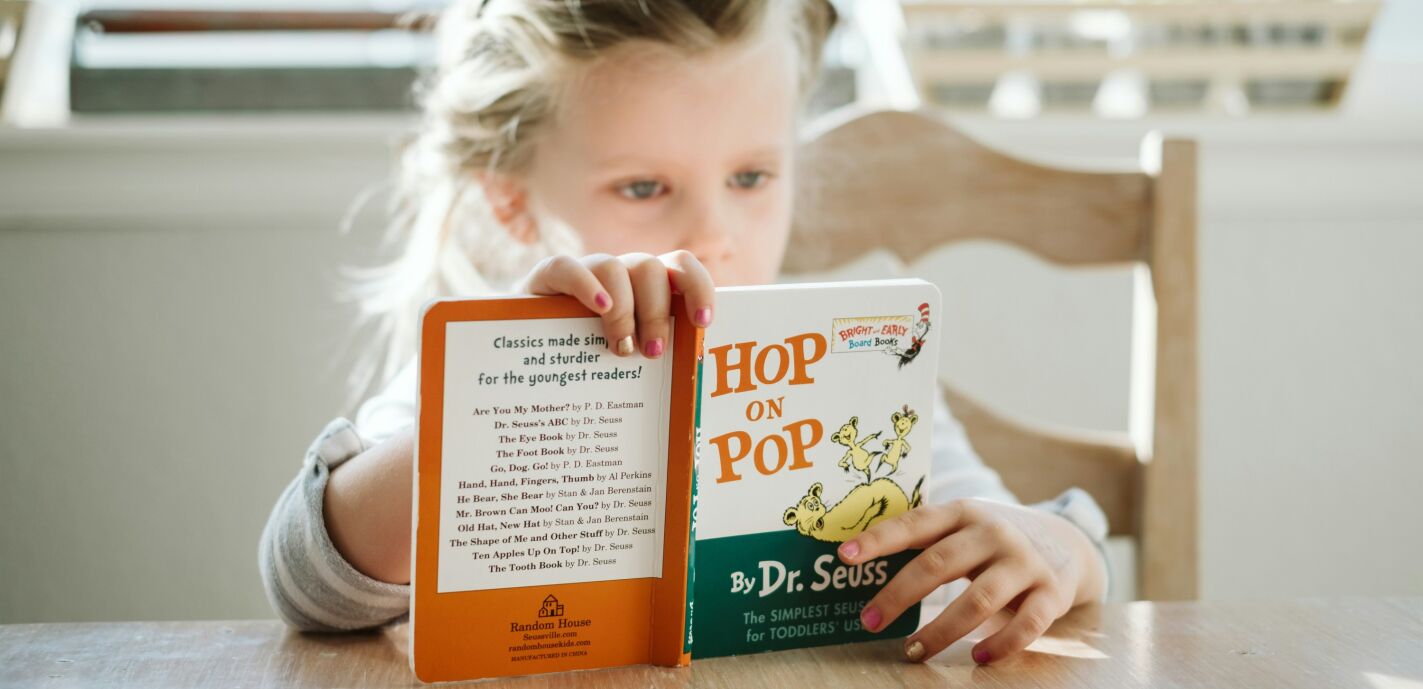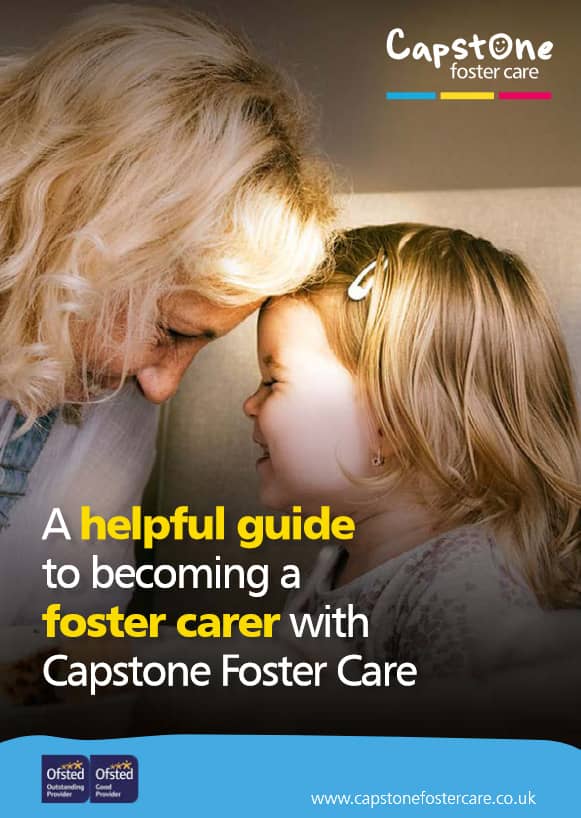


Fostering a disabled child
The role of an independent fostering agency
How to choose a foster care agency
Can I choose who I foster?
What are the benefits of fostering with an independent fostering agency?
What happens when a child is taken into care?
Fostering process: what happens on an initial home visit?
Fostering with local authority vs independent agency
A complete guide to becoming a foster carer
How Are Children in Foster Care Matched with Carers?
Foster Care Budgeting Tips
Becoming A Foster Carer
What is a Care Leaver?
What is a Foster Carer?
Fostering Regulations
How long does it take to become a Foster Carer?
What are the Foster Care requirements?
Changing IFA - Transferring to Capstone
8 reasons why a child may be taken into care
Fostering as a Career
Can you foster if you smoke or vape?
A guide to fostering assessments
LGBTQ+ Fostering
Equality, Inclusion & Anti-discriminatory Practice in Foster Care
What can disqualify you from foster care?
Can you foster if you’re on benefits?
Top transferable job skills to become a foster carer
Fostering as a same sex couple
Fostering while renting
Can you foster if you have mental health issues?
Is there an age limit for fostering in the UK?
Do foster carers get a pension?
How to foster a child: A step by step guide
How do DBS Checks Work?
Can I foster if...?
Mythbusting the top 10 Foster Care Myths
Can I foster if I am disabled?
LGBT Fostering Mythbusting
Can I foster if I have pets?
Can I Foster A Child?
Can I Foster and Work?
Can you Foster with a Criminal Record
Can Single People Foster?
LGBT Family and Foster Care
Fostering across Cultures
Muslim Fostering
Christian Foster Care
Sikh Fostering
Empty Nest Syndrome and Foster Care
Can I Foster?
What is the difference between residential care and foster care?
Fostering Babies and Young Children
What is Kinship Care?
Fostering Babies - Myths
Focusing on Parent & Child Fostering
Fostering Siblings
Fostering Teenagers
Fostering Teenagers - Breaking down the Myths
Fostering Unaccompanied and Asylum Seeking Children
Mother and Baby Foster Placements
Private Fostering
How does therapeutic fostering work?
Young Children Fostering Placements
Difference between short and long-term fostering
Types of self-harm
A Guide to the Foster Care Handbook
Reunification and Birth Parents: A Guide for Foster Carers
What is an EHC Plan? A Guide for Foster Carers
How to prepare a child for becoming a care leaver
Children who foster: impact of fostering on birth children
Fostering LGBTQ+ Youth
How to prepare your home for a foster child
How to help a lonely child: A Guide for Foster Carers
What are the National Minimum Standards for Fostering Services?
10 tips for foster children's education
How to prepare your foster child for secondary school
Tips for coping when foster placements end
Tips for foster parents during Coronavirus
What happens if foster parents get divorced?
5 ways to manage Mother's Day with foster children
Tips for managing foster children's bedtime routines
How to handle foster child bullying
Fostering allowances and the gender pay gap
What discounts can foster carers get?
How to adopt from Foster Care
5 ways to manage Father's Day for children in foster care
8 most common fostering challenges
FosterTalk Membership with Capstone Foster Care
Supporting foster children's contact with birth families
A guide to independent fostering
Keeping Children Safe Online: A Guide For Foster Carers
Movies About Foster Care
Play-based learning strategies for foster carers
A Guide to the Staying Put Program
Why Foster Parent Wellbeing Matters
How to deal with empty nest syndrome
How to recognise signs of depression in foster children
Can you take a foster child on holiday?
Tips and advice on fostering with a disability
10 tips on connecting with your Foster Child
Fostering vs Adoption - What's the difference?
How Fostering can change a future
How to adopt from Foster Care
How to encourage children to read in Foster Care
How to prepare a Foster Child's bedroom
Reading and Storytelling with Babies and Young Children
Supporting Children's Learning
The 20 most recommended books Foster Carers and young people should read
Things you can do when your children leave home
The impact of early childhood traumas on adolescence and adulthood
Anxious Disorders in Foster Children
What is sexual abuse and sexual violence
Foster Child behaviour management strategies
Foster Parent Advice: What to expect in your first year of fostering
Capstone's twelve tips at Christmas
10 celebrities who grew up in Foster Care
Could Millenials be the solution to the Foster Care crisis?
Do you work in Emergency Services?
Form F Assessor and Assessment Training
Foster Care Fortnight
Improving Children's Welfare - Celebrating Universal Children's Day
New Year - New Career - Become a Foster Carer
Young People Charities
Reading is not just important for children to perform well academically but can also help your foster child develop imagination, creativity, empathy, and well-being. The joy of reading can be life-changing for foster children, teaching them how to articulate their feelings and validate their experiences through representation.
A study conducted by Book Trust highlights some interesting findings related to the effects that reading, or not reading, can have among children in foster care. The study found that over half of children in foster care were below average in their reading levels.
Establishing a habit of reading from a young age is the most common way of developing a love for reading. However, as a foster carer, it can be more difficult to establish reading as a habit especially if you’re fostering an older child or if you’re establishing a reading routine for a child who has not experienced much routine in their life.
Some children will not enjoy reading naturally. If their reading level is lower than their age, or if they struggle with dyslexia or other educational needs, they might feel worried or anxious about reading. As a foster carer, it’s important to reassure your foster child if they are worried about reading. Positive reinforcement is a good strategy to encourage reading. You could reward reading time with another activity your foster child enjoys, or even with a simple sticker chart.
Establishing a reading routine is one of the best ways for your foster child to build a positive relationship with books. If you’re caring for a younger foster child, you can incorporate reading into their bedtime routine, as it’s a proven method to keep them calm and relaxed before bed. For an older child, you should encourage them to take half an hour before bed to read, instead of interacting with screens and devices.
For younger children, you could ask your foster child to interact with the story too. Halfway through reading to them, you could ask the child what they think is going to happen at the end, building their listening and comprehension skills. When you have finished reading the story, ask the child what their favourite part was – as this will enable them to pick out points of interest for them and engage more with the story. If you repeat this in every story you tell, they’ll also come to expect it, which will get them actively listening more and pre-empting the questions.
Even when storytime is over, ensure that reading becomes a game for them! Ask them to read out a certain dish on the menu at a restaurant; signs across the road; or movie names – soon, they’ll become confident at reading external material in or outside the house and start reading it voluntarily themselves.
Surround your foster child with lots of material around them that they can pick up and read if they wish to. You can also take regular trips to your local library to allow your foster children to pick up books that they’re interested in.
Stepping back and letting them decide what you read together is important, and it establishes their interests and dislikes. That’s why branching out on the reading material you provide for your child is important – as it will demonstrate that there is a wealth of content and stories out there to be read, and it’s up to you to help them find their forte!
Technology for storybooks is an ever-increasing domain which makes getting children to read all the easier for foster parents. Using a tablet or an iPad, there are various apps you can download for children to learn to read – as well as the option for eReaders, such as Kindles, that they can have access to a plethora of material at the touch of a button! And don’t worry – you can always choose what level of access children have on the tablet settings.
Like any skill, foster children’s reading skills will only improve through repeating the action. It’s beneficial to read as many stories as you can each day to children, making sure they can see the book you’re reading, too, so they can highlight and learn the words. That way, they’ll come to expect stories being told – which would encourage them to not only want you to tell them stories but eventually, read books themselves, too.
Now you’ve found some handy suggestions on how to get children to read, it’s time to use them on your foster children. If you ever need any fostering support, our expert team are always on hand to help – contact us for more help and information on encouraging children to read today.
If you’ve got any questions or would like to find out more about fostering with Capstone, fill out the form below.
An experienced fostering advisor from your local area will then be in touch.

Start the conversation today. Our team of friendly advisors are on hand to answer any foster care questions you may have. We can offer you honest and practical advice that can help you decide if becoming a foster carer is the right path for you.


